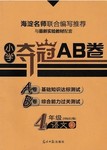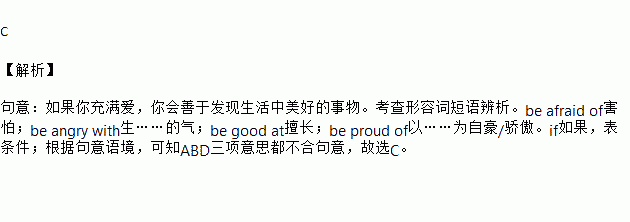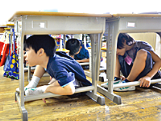题目内容
If you are full of love, you’ll _________ finding the beautiful things in your life.
A. be afraid of B. be angry with C. be good at D. be proud of
 小学夺冠AB卷系列答案
小学夺冠AB卷系列答案 ABC考王全优卷系列答案
ABC考王全优卷系列答案阅读下面短文,完成下面表格的填写
What do you think of different kinds of reference books(参考书>? We did a survey. Here’re some of their answers.

Liu Yang
In some ways, reference books (参考书) are useful. They help us understand textbooks better. For example, if we can’t learn a language point well in English class, a reference book can help us to review the point. So I think it’s better to have such books.
Wang Qian
Reference books have some disadvantages. Some reference books show answers to the exercises in textbooks. This isn’t very good. Students will just copy the answers directly instead of thinking for themselves. Day after day, students won’t listen carefully in class.
Zheng Xia
Sometimes, reference books are useful. Some reference books show something a little bit more difficult than the textbooks. They challenge us and let us reach a higher level in our studies. So if you want to learn more, reference books are needed.
Liu Wei
I don’t think reference books are very helpful. If we listen to our teachers carefully and solve the problems at school, this is enough to grasp (掌握>all the knowledge. Besides, the school has already gives us a lot of homework. More reference books will only make us sick of studying. And for some subjects like English , if you want to learn well, the best way is to speak, not just to do exercises.
For your reference books | ||
1. | Liu Yang | In some ways, they are useful because they 2. better |
Zheng Xia | Reference books can help us learn more and challenge us to 3.in our studies. | |
Disadvantages | Wang Qian | Students won’t think or 4. in class because they can copy the answers from the reference books. |
Liu Wei | More reference books aren’t very helpful. They will only 5. |



